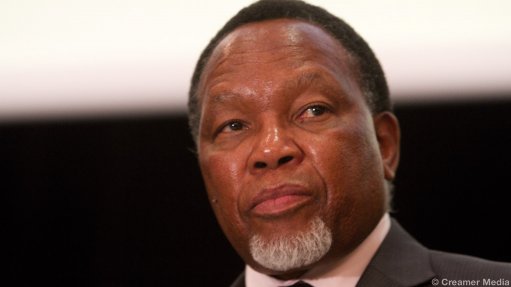
Photo by: Duane Daws
The Human Resources Development Council (HRDC), chaired by Deputy President Kgalema Motlanthe, on Wednesday, at its fourteenth meeting, pledged its support for recommendations made by the Technical Task Team on Enabling Entrepreneurship, specifically with regard to supporting small, micro and medium-sized enterprises (SMMEs) through business education and funding.
The council also acknowledged the current challenges facing potential entrepreneurs in the country, such as the difficulty of accessing support, including finance, especially for people from disadvantaged backgrounds, the Presidency said in a statement.
Deloitte Consulting public sector lead Gaba Thabane pointed out that currently only 40% of South Africa’s gross domestic product (GDP) was made up of entrepreneurial activities, as opposed to 70% of the global GDP and 60% of the economic activities for countries such as China and Japan.
Speaking at the inaugural Gauteng Funding Fair in March, he stated that the National Development Plan went to great lengths in emphasising the importance of creating jobs in the local economy, “and we recognise economic growth as the catalyst for job creation and, therefore, the circle completes itself if entrepreneurship creates economic growth”.
Trade and Industry Deputy Minister Elizabeth Thabethe said at the close of the two-day National Small Business Summit, in October last year, that the requirements of funding institutions continued to hamper the growth of SMMEs.
She noted that the most significant challenges faced by the SMME sector were a lack of coordination between the three spheres of government, the need for microfinance and the need to establish more youth-driven cooperatives.
Meanwhile, the Nuclear Industry Association of South Africa updated the HRDC on the need to prioritise skills required for the nuclear build programme and associated infrastructure.
President Jacob Zuma, in his State of the Nation Address on February 13 this year, reaffirmed the intent to procure of 9 600 MW of new nuclear power, which formed part of South Africa’s Integrated Resource Plan 2010.
The association stated that the industry required more artisans, engineers and technicians.
In March, Engineering News Online reported that South African government departments and agencies had undertaken visits to China, Japan, (South) Korea, Russia and the US, to study their civil nuclear energy programmes.
"A number of these countries have proposals for partnerships in developing nuclear energy skills," said Minister of Energy Dikobe Ben Martins at the Nuclear Africa 2014 conference. These partnerships would particularly focus on South African undergraduates and graduates. "There is also a willingness to provide training to highly skilled individuals in the nuclear sector," he noted.
The HRDC also received an update on work done by the National Education Collaboration Trust (NECT) since its launch in July 2013.
The NECT had worked towards supporting the quality of education with a specific focus on the professionalising of teachers, strengthening school districts, improving learner welfare and increasing community involvement.